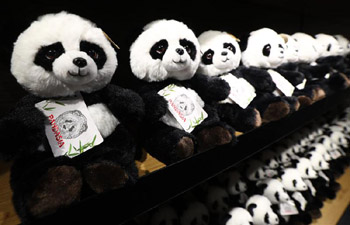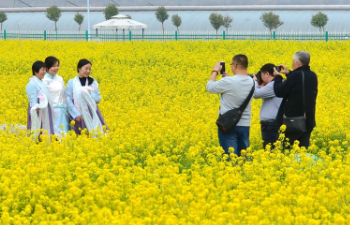CANBERRA, April 7 (Xinhua) -- Honey bees have been found to have much better vision than previously thought, with a research team from the University of Adelaide even saying they could be vital in developing technology such as in the field of "robot vision".
A team of researchers gave western honey bees "eye tests" in the hope of answering two lingering questions: first, 'what is the smallest well-defined object that a bee can see?'; and second, 'how far away can a bee see an object, even if it can't see that object clearly?'.
Lead researcher, Dr Steven Wiederman from the University of Adelaide said the tests were conducted in both daylight and darkness, to get a clear idea of what a honey bee's eyesight was really like.
"Previous researchers have measured the visual acuity of bees, but most of these experiments have been conducted in the dark. Bright daylight and dark laboratories are two completely different environments," he said in a statement released overnight.
"Their eyes are made out of thousands of facets, (so) naturally, we expected some differences in the quality of bees' eyesight from being tested in brightly lit conditions compared with dim light."
Co-researcher, Dr Elisa Rigosi from the Lund University in Sweden said the bees had much better eyesight than first thought.
"We found that in the frontal part of the eye, where the resolution is maximized, honey bees can clearly see objects that are as small as 1.9°, that's approximately the width of your thumb when you stretch your arm out in front of you," Rigosi said in the statement.
"This is 30 percent better eyesight than has been previously recorded.
"These new results suggest that bees have the chance to see a potential predator, and thus escape, far earlier than what we thought previously, or perceive landmarks in the environment better than we expected, which is useful for navigation and thus for survival."
Wiederman said the results of the tests could be of benefit to other scientific fields, such as robotics.
"We've shown that the honey bee has higher visual acuity than previously reported. They can resolve finer details than we originally thought, which has important implications in interpreting their responses to a range of cognitive experiments scientists have been conducting with bees for years," he said.
"Importantly, these findings could also be useful in our work on designing bio-inspired robotics and robot vision, and for basic research on bee biology."

















